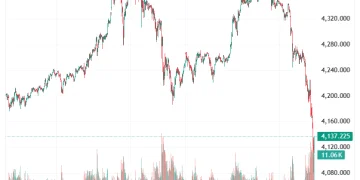Government Moves to Stem GHS 2.36bn Annual Losses in Public Procurement
Government has announced a series of far-reaching reforms to its public procurement system in a bid to curb financial leakages estimated at more than GHS 2.36 billion annually, according to the Deputy Minister for Finance, Thomas Nyarko Ampem.
Speaking at the National Procurement and Supply Conference themed “Transforming Public Procurement for Sustainable Development: Policies, Practices and Pathways,” on Saturday, September 20, 2025, Mr Nyarko Ampem said the reforms were aimed at strengthening accountability and ensuring value for money in public spending.
He described procurement irregularities as “a drain on scarce resources” that could otherwise finance hospitals, schools and climate-resilient infrastructure.
Citing a Ghana Institute of Procurement and Supply (GIPS) report, the minister highlighted systemic weaknesses such as unauthorised procurements, flawed evaluations, poor supervision and specifications tailored to favour particular suppliers. Such inefficiencies, he warned, undermine development priorities and erode public trust.
As part of the reforms, the government has amended the Public Procurement Act to make commencement certificates and budgetary allocations mandatory for all central government-funded contracts. The Ministry of Finance has also set up a Public Financial Management (PFM) Compliance Division to enforce rules through the Ghana Electronic Procurement System (GHANEPS).
In addition, Cabinet is considering a Procurement Practising Bill designed to professionalise the procurement function, embed sustainability safeguards and introduce stricter anti-corruption measures. “This legislation is expected to raise standards and give procurement the strategic importance it deserves,” Mr Nyarko Ampem said.
He added that the measures form part of President John Mahama’s broader economic reset agenda and align with the 24-Hour Economy Programme, which prioritises local production, green procurement and job creation.
The Deputy Minister further urged procurement professionals to embrace digital platforms, uphold local content policies and enforce value-for-money principles. “Every insistence on local content builds industries that can compete across Africa and beyond,” he said.








